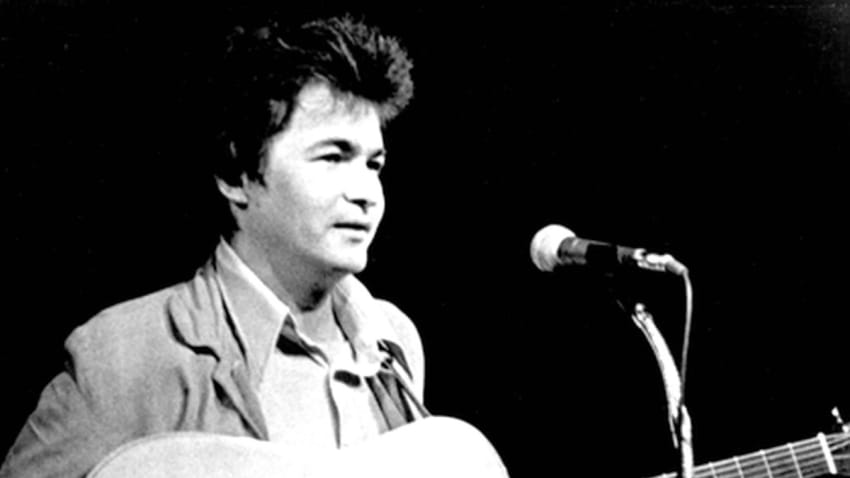How Roger Ebert Helped Launch John Prine’s Music Career
The film critic played an integral role in drawing attention to the renowned singer-songwriter.
By Andy Kahn Oct 10, 2023 • 12:03 pm PDT

Roger Ebert stumbled upon John Prine playing his songs in a Chicago bar in 1970. The noted film critic wrote a glowing review of Prine’s performance that fateful night at the Fifth Peg, which was located at 858 W. Armitage in the Lincoln Park neighborhood.
In the late 1960s after serving a stint in the army, Prine, who was born and raised in the Chicago suburb of Maywood, returned home and began working as a mailman, crafting songs while on his route. In July 1970, Prine’s professional career began when he started performing at the Fifth Peg, which was located near the Old Town School Of Folk where Prine studied.
Advertisement
One of those performances at the Fifth Peg was attended by Ebert. Blown away by Prine’s songwriting, the film critic was compelled to write a review in the Chicago Sun-Times that proved integral in bringing attention to Prine and his songs.
In 2010, Ebert reflected on seeing Prine 40 years earlier, writing:
“Through no wisdom of my own but out of sheer blind luck, I walked into the Fifth Peg, a folk club on West Armitage, one night in 1970 and heard a mailman from Westchester singing. This was John Prine.
“He sang his own songs. That night I heard ‘Sam Stone,’ one of the great songs of the century. And ‘Angel from Montgomery.’ And others. I wasn’t the music critic for the Chicago Sun-Times, but I went to the office and wrote an article. And that, as fate decreed, was the first review Prine ever received.”
Published on Friday, October 9, 1970 – one day before Prine’s 24th birthday – Ebert’s review ran under the headline “Singing Mailman Who Delivers A Powerful Message In A Few Words.” Ebert’s review cited several of Prine’s original songs that would appear on his self-titled debut album that came out in 1971. Indicative of how new they were at the time, Ebert labeled some songs by different titles. “Sam Stone” was called “The Great Society Conflict Veteran’s Blues” and “Hello In There” was given the title “Old Folks.”
Describing Prine’s performance and original compositions, Ebert wrote:
“He appears on stage with such modesty he almost seems to be backing into the spotlight. He sings rather quietly, and his guitar work is good, but he doesn’t show off. He starts slow. But after a song or two, even the drunks in the room begin to listen to his lyrics. And then he has you …
“Prine’s songs are all original, and he only sings his own. They’re nothing like the work of most young composers these days, who seem to specialize in narcissistic tributes to themselves. He’s closer to Hank Williams than to Roger Williams, closer to [Bob] Dylan than to [Phil] Ochs. ‘In my songs,’ he says, ‘I try to look through someone else’s eyes, and I want to give the audience a feeling more than a message.’”
Now 53 years later, on what would have been Prine’s 77th birthday, the words written by Ebert (who died in 2013 at age 70) ring as true as they did when he called the then-23-year-old an “extraordinary new composer and performer.” Read the full review here.
Advertisement
Prine would go on to fulfill that label over the next 50 years of an extraordinary career in music. The beloved singer-songwriter died in April 2020, an early victim of complications from contracting COVID-19,
For a sense of what Roger Ebert experienced that night in Chicago in October 1970 when John Prine was onstage at the Fifth Peg, below are a pair of recordings of Prine at the now-defunct folk club. The first is from before Ebert’s Sun-Times review in August 1970 and a second set (released as part of the Singing Mailman Delivers live album) that took place in November 1970, a month after the review was published.
Both setlists featured now-classic songs from John Prine, including “Hello In There,” “Sam Stone” (“The Great Society Conflict Veteran’s Blues”), “Angel From Montgomery,” “Flashback Blues,” “Illegal Smile,” “Paradise,” “Quiet Man,” “Spanish Pipedream” and “Your Flag Decal Won’t Get You Into Heaven Anymore.” Songs from Prine’s second album, 1972’s Diamonds In The Rough were also part of his sets, like “Souvenirs,” “Sour Grapes” “The Frying Pan” and “The Great Compromise,” while “Blue Umbrella” and “A Good Time” would appear on his 1973 album, Sweet Revenge.
Listen for the unreleased song “Good-Bye So Long” and a cover medley of “Hey, Good Lookin’” and “Jambalaya”:
